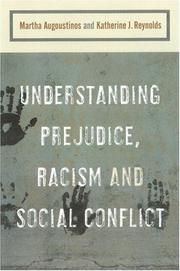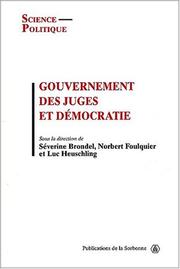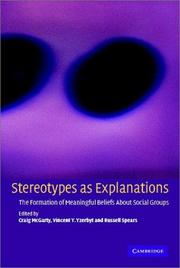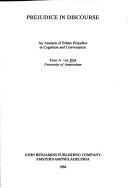| Listing 1 - 10 of 16 | << page >> |
Sort by
|
Book

ISBN: 2379280061 2361700247 Year: 2017 Publisher: Toulouse : Presses de l’Université Toulouse Capitole,
Abstract | Keywords | Export | Availability | Bookmark
 Loading...
Loading...Choose an application
- Reference Manager
- EndNote
- RefWorks (Direct export to RefWorks)
La pédagogie est traditionnellement œuvre de l'enseignant. D'autres acteurs s'efforcent désormais d'être tout aussi pédagogues afin de servir le droit. Deux phénomènes apparaissent en effet : l'un, en direction des citoyens en vue de rendre le droit plus clair et plus accessible ; l'autre, en direction des praticiens consistant en l'élaboration de véritables “modes d'emploi”. La complexité du droit, qui a entraîné ces diverses réactions, a modifié les rapports entre pédagogie et droit. Face à ces changements, quelle place l'enseignant peut-il prendre ? Comment les acteurs du droit prennent-ils en compte cette pédagogie ? Les praticiens, les administrés et les justiciables, perçoivent-ils cet effort ? Est-il suffisant et efficace ? Cet ouvrage collectif est dès lors construit autour de deux problématiques : l'une porte sur les acteurs de cette pédagogie, l'autre sur ses méthodes. La pédagogie n'est-elle qu'une adaptation à la transformation du droit ? Ces méthodes didactiques connaissent-elles une véritable mutation et dans quelle mesure ? De telles interrogations impliquent en définitive d'appréhender les motivations d'une telle pédagogie : un souci de sécurité juridique, la recherche d'une plus grande efficacité du droit, une exigence démocratique… C'est à cet ensemble de questions que le présent ouvrage, issu d'un colloque tenu les 28 et 29 janvier 2010 à l'UT1-Capitole, tente d'apporter un éclairage.
Education --- Law --- enseignement --- renouvellement --- doctrine du juge --- motivation didactique
Book
ISBN: 9781107451841 9781107087064 9781316091845 1107087066 1107451841 1316091848 1316718859 1316722457 1316723054 1316723658 1316724255 1316725456 1316726053 9781316726051 Year: 2016 Publisher: Cambridge : Cambridge University Press,
Abstract | Keywords | Export | Availability | Bookmark
 Loading...
Loading...Choose an application
- Reference Manager
- EndNote
- RefWorks (Direct export to RefWorks)
Questions of the application and interpretation of the ne bis in idem principle in EU law continue to surface in the case law of different European courts. The primary purpose of this book is to provide guidance and to address important issues in connection with the ne bis in idem principle in EU law. The development of the ne bis in idem principle in the EU legal order illustrate the difficulty of reconciling pluralism with the need for doctrinal coherence, and highlights the tensions between the requirements of effectiveness and the protection of fundamental rights in EU law. The ne bis in idem principle is a 'litmus test' of fundamental rights protection in the EU. This book explores the principle, and the way the Court of Justice of the European Union has interpreted it, in the context of competition law and the areas of freedom, security and justice, human rights law and tax law.


ISBN: 2753504121 2753529620 Year: 2015 Publisher: Rennes : Presses universitaires de Rennes,
Abstract | Keywords | Export | Availability | Bookmark
 Loading...
Loading...Choose an application
- Reference Manager
- EndNote
- RefWorks (Direct export to RefWorks)
Dans la France d’Ancien Régime, alors que les nobles servent le roi par les armes, les magistrats le servent en administrant le royaume. Cette fonction s’accompagne du sentiment d’occuper une place toute particulière dans l’organisation sociale. D’Aguesseau n’écrivait-il pas « Juges de la terre, vous êtes des Dieux et les enfants du Très Haut » ? La culture commune des juristes les amène à réfléchir au gouvernement des sociétés humaines et à y participer. À de nombreuses reprises, la position adoptée par les compagnies de hauts magistrats s’est avérée déterminante, notamment en période de crise. Ainsi, pendant la Ligue, les parlements légalistes ont sauvé la monarchie alors qu’au XVIIIe siècle, les cours rebelles ont empêché la réforme de l’État royal. Moins en vue, mais aussi plus indépendants à l’égard du pouvoir monarchique, les avocats ont joué un rôle aussi important que méconnu. Cet ouvrage s’intéresse aux relations qu’ont entretenues les hommes de loi, avocats et magistrats, avec le pouvoir politique du XVIe au XIXe siècle. Consacrées à des parlementaires, des conseillers de présidial et des avocats, ces treize études livrent une série d’éclairages qui permettent de s’interroger sur l’existence d’une culture politique commune aux hommes de loi.
History --- notaire --- juge --- juriste --- administration --- pouvoir politique --- pouvoir royal --- Ancien régime --- France --- société --- histoire de France --- histoire de la justice --- histoire des institutions --- histoire politique
Book
ISBN: 9780521878357 0521878357 9780521702591 0521702593 9780511802560 9780511691478 0511691475 1107210895 9781107210899 0511849753 9780511849756 1282653377 9781282653375 9786612653377 661265337X 0511802560 0511689993 9780511689994 0511692595 9780511692598 0511690738 9780511690730 051168925X Year: 2010 Publisher: Cambridge, UK ; New York : Cambridge University Press,
Abstract | Keywords | Export | Availability | Bookmark
 Loading...
Loading...Choose an application
- Reference Manager
- EndNote
- RefWorks (Direct export to RefWorks)
"While overt prejudice is now much less prevalent than in decades past, subtle prejudice - prejudice that is inconspicuous, indirect, and often unconscious - continues to pervade. Laws do not protect against subtle prejudice and, because of its covert nature, it is difficult to observe and frequently goes undetected by both perpetrator and victim. Benign Bigotry uses a fresh, original format to examine subtle prejudice by addressing six commonly held cultural myths based on assumptions that appear harmless but actually foster discrimination: 'those people all look alike'; 'they must be guilty of something'; 'feminists are man-haters'; 'gays flaunt their sexuality'; 'I'm not a racist, I'm color-blind' and 'affirmative action is reverse racism'. Kristin J. Anderson skillfully relates each of these myths to real world events, emphasizes how errors in individual thinking can affect society at large, and suggests strategies for reducing prejudice in daily life"--Provided by publisher.
Prejudices. --- Toleration. --- Discrimination. --- Préjugés --- Préjugés --- Prejudices --- Toleration --- Discrimination --- Bigotry --- Intolerance --- Tolerance --- Virtues --- Bias (Psychology) --- Prejudgments --- Prejudice --- Prejudices and antipathies --- Attitude (Psychology) --- Emotions --- Health Sciences --- Psychiatry & Psychology

ISBN: 0863775802 0203506960 9780203506967 1280168803 9781280168802 9781135471545 9781135471491 9781135471538 9780863775802 9781138004320 Year: 2004 Publisher: New York : Psychology Press,
Abstract | Keywords | Export | Availability | Bookmark
 Loading...
Loading...Choose an application
- Reference Manager
- EndNote
- RefWorks (Direct export to RefWorks)
The fundamental phenomenon of human closed-mindedness is treated in this volume. Prior psychological treatments of closed-mindedness have typically approached it from a psychodynamic perspective and have viewed it in terms of individual pathology. By contrast, the present approach stresses the epistemic functionality of closed-mindedness and its essential role in judgement and decision-making. Far from being restricted to a select group of individuals suffering from an improper socialization, closed-mindedness is something we all experience on a daily basis. Such mundane situational conditions
Social psychology --- Judgment --- Reasoning --- Prejudices. --- Social perception. --- Characters and characteristics --- Personality --- Jugement --- Raisonnement --- Préjugés --- Perception sociale --- Personnages --- Personnalité --- Prejudices --- Social perception --- #PBIB:2005.3 --- 316.63 --- 316.64 --- Sociaal bewustzijn. Zelfconcept --- Maatschappelijke attitudes --(sociale psychologie) --- Sociale psychologie --- handboeken en inleidingen --- handboeken en inleidingen. --- 316.64 Maatschappelijke attitudes --(sociale psychologie) --- 316.63 Sociaal bewustzijn. Zelfconcept --- Préjugés --- Personnalité --- Personality. --- Cognition, Social --- Interpersonal perception --- Social cognition --- Interpersonal relations --- Perception --- Social cognitive theory --- Bias (Psychology) --- Prejudgments --- Prejudice --- Prejudices and antipathies --- Attitude (Psychology) --- Emotions --- Judgment.

ISBN: 0761962077 0761962085 1446218872 9786610369782 1280369787 1446239616 1412931363 9781412931366 9781446218877 9781280369780 661036978X 9781446239612 9780761962076 9780761962076 9780761962083 Year: 2001 Publisher: London ; Thousand Oaks, Calif. : SAGE,
Abstract | Keywords | Export | Availability | Bookmark
 Loading...
Loading...Choose an application
- Reference Manager
- EndNote
- RefWorks (Direct export to RefWorks)
Written for students and academics working in the social sciences, Understanding Prejudice, Racism and Social Conflict integrates a variety of approaches to understanding these issues whilst suggesting new ways of studying these complex problems.
Prejudices. --- Racism. --- Racism --- Social conflict. --- Préjugés --- Racisme --- Conflits sociaux --- Social aspects. --- Aspect social --- Prejudices --- Social conflict --- Ethnic & Race Studies --- Gender & Ethnic Studies --- Social Sciences --- Préjugés --- Class conflict --- Class struggle --- Conflict, Social --- Social tensions --- Bias (Psychology) --- Prejudgments --- Prejudice --- Prejudices and antipathies --- Bias, Racial --- Race bias --- Race prejudice --- Racial bias --- Interpersonal conflict --- Social psychology --- Sociology --- Attitude (Psychology) --- Emotions --- Anti-racism --- Race relations --- #PBIB:2004.2 --- Critical race theory
Book
ISBN: 9780521198165 052119816X 9780521139625 0521139627 9781139022736 9781139206006 1139206001 9781139204422 1139204424 1139022733 9781139203012 9781139201605 1139201603 1139199404 1107223725 1280562617 9786613597892 113920520X 1139203010 Year: 2012 Publisher: Cambridge : Cambridge University Press,
Abstract | Keywords | Export | Availability | Bookmark
 Loading...
Loading...Choose an application
- Reference Manager
- EndNote
- RefWorks (Direct export to RefWorks)
The concept of prejudice has profoundly influenced how we have investigated, explained and tried to change intergroup relations of discrimination and inequality. But what has this concept contributed to our knowledge of relations between groups and what has it obscured or misrepresented? How has it expanded or narrowed the horizons of psychological inquiry? How effective or ineffective has it been in guiding our attempts to transform social relations and institutions? In this book, a team of internationally renowned psychologists re-evaluate the concept of prejudice, in an attempt to move beyond conventional approaches to the subject and to help the reader gain a clearer understanding of relations within and between groups. This fresh look at prejudice will appeal to scholars and students of social psychology, sociology, political science and peace studies.
Prejudices --- Prejudices. --- Social change. --- Social psychology. --- Psychological aspects. --- Social aspects. --- Préjugés --- Préjugés --- Social psychology --- Psychologie sociale --- Social change --- Mass psychology --- Psychology, Social --- Human ecology --- Psychology --- Social groups --- Sociology --- Change, Social --- Cultural change --- Cultural transformation --- Societal change --- Socio-cultural change --- Social history --- Social evolution --- Bias (Psychology) --- Prejudgments --- Prejudice --- Prejudices and antipathies --- Attitude (Psychology) --- Emotions --- Psychological aspects --- Social aspects --- Discrimination --- Bias --- Interpersonal relations --- Minorities --- Toleration --- Health Sciences --- Psychiatry & Psychology

ISBN: 2859444343 9791035103507 9782859444341 Year: 2001 Volume: 3 Publisher: Paris: Publications de la Sorbonne,
Abstract | Keywords | Export | Availability | Bookmark
 Loading...
Loading...Choose an application
- Reference Manager
- EndNote
- RefWorks (Direct export to RefWorks)
Consacrer un séminaire — et désormais un ouvrage — au thème « Gouvernement des juges et démocratie » est d’autant plus ambitieux qu’aujourd’hui l’expression est utilisée dans le langage commun, celui des journalistes, mais aussi celui des hommes politiques qui, de manière périodique, en France, accusent les juges constitutionnel, judiciaire et administratif de se comporter comme des juges qui gouvernent. Le premier défi consiste donc à analyser cette notion d’un point de vue scientifique et à déterminer le sens qu’elle peut revêtir tant pour les juristes que pour les politistes ; le deuxième défi consiste à établir le lien avec la démocratie et plus particulièrement à déterminer s’il est positif ou négatif. La question se pose de manière d’autant plus aiguë qu’elle concerne le rôle que jouent, au premier chef, les juges constitutionnels en tant que censeurs de l’action du législateur, démocratiquement élu, mais aussi les juridictions supranationales dont les décisions s’imposent dans les ordres juridiques nationaux. Par la richesse des contributions qu’il réunit, la qualité de leurs auteurs et la multiplicité des points de vue, ce livre s’adresse à tous ceux qui s’interrogent sur la place qu’occupent les juges dans les démocraties.
Justice, Administration of --- Democracy --- Justice --- Démocratie --- Political aspects --- Administration --- Aspect politique --- Pouvoir judiciaire --- Controle juridictionnel des lois --- Separation des pouvoirs --- 342.56 --- 321.151 --- Rechterlijke macht --- Democratie --(klassieke democratie politieke stelsels) --- 342.56 Rechterlijke macht --- 321.151 Democratie --(klassieke democratie politieke stelsels) --- Démocratie --- Justice and politics in democracies --- Pouvoir judiciaire - Congres. --- Controle juridictionnel des lois - Congres. --- Separation des pouvoirs - Congres. --- Public Administration --- juge --- démocratie --- DROIT CONSTITUTIONNEL --- DROIT CONSTITUTIONNEL COMPARE --- DEMOCRATIE --- POUVOIR JUDICIAIRE --- CONTROLE JURIDIQUE SUR LA CONSTITUTIONNALITE DES LOIS --- CONTROLE SUR LA LEGALITE DES ACTES ADMINISTRATIFS

ISBN: 0521804825 0521800471 1107130204 0511177569 0511041357 0511147953 0511305079 0511489870 1280430249 0511047460 9780511177569 9780511489877 9780511041358 9780511047466 9780511147951 9781280430244 9780511305078 9780521804820 9786610430246 6610430241 9780521800471 9781107130203 Year: 2002 Publisher: London ; New York : Cambridge University Press,
Abstract | Keywords | Export | Availability | Bookmark
 Loading...
Loading...Choose an application
- Reference Manager
- EndNote
- RefWorks (Direct export to RefWorks)
Stereotyping is one of the biggest single issues in social psychology, but relatively little is known about how and why stereotypes form. Stereotypes as Explanations is the first book to explore the process of stereotype formation, the way that people develop impressions and views of social groups. Conventional approaches to stereotyping assume that stereotypes are based on erroneous and distorted processes, but the authors of this book take a very different view, namely that stereotypes form in order to explain aspects of social groups and in particular to explain relationships between groups. In developing this view, the authors explore classic and contemporary approaches to stereotype formation and advance new ideas about such topics as the importance of category formation, essentialism, illusory correlation, interdependence, social reality and stereotype consensus. They conclude that stereotypes are indeed explanations, but they are nevertheless highly selective, variable and frequently contested explanations.
Stereotype (Psychology) --- Social groups --- Prejudices --- 316.45 --- #SBIB:309H505 --- 316.45 Sociale groepen. Groepsprocessen. Kleine groepen. Interactionele groepsdynamiek --- Sociale groepen. Groepsprocessen. Kleine groepen. Interactionele groepsdynamiek --- Bias (Psychology) --- Prejudgments --- Prejudice --- Prejudices and antipathies --- Attitude (Psychology) --- Emotions --- Association --- Group dynamics --- Groups, Social --- Associations, institutions, etc. --- Social participation --- Mental stereotypes --- Stereotyping (Social psychology) --- Social psychology --- Rigidity (Psychology) --- Code en boodschap: psychologische, psycho-analytische benadering --- Préjugés --- Stereotypes (Social psychology) --- Cognitive psychology --- Philosophy and psychology of culture --- Social groups. --- Prejudices. --- Stéréotypes --- Groupes, Dynamique des --- Health Sciences --- Psychiatry & Psychology

ISBN: 1283359367 9786613359360 9027280037 9789027280039 0915027437 9780915027439 9789027225368 9027225362 Year: 1984 Volume: V:3 Publisher: Amsterdam ; Philadelphia : J. Benjamins Pub. Co.,
Abstract | Keywords | Export | Availability | Bookmark
 Loading...
Loading...Choose an application
- Reference Manager
- EndNote
- RefWorks (Direct export to RefWorks)
In this book, a study is made of ethnic prejudice in cognition and conversation, based on intensive interviewing of white majority group members. After an introductory survey of traditional and more recent approaches in social psychology to the study of prejudice, a new 'sociocognitive' theory is sketched. This theory explains how cognitive representations and strategies of ethnic prejudice depend on their social functions within intergroup relations. It is also shown how ethnic prejudice is communicated in society through everyday talk among majority members. The major part of the book system
Discourse analysis. --- Prejudices. --- Conversation analysis. --- Minorities. --- Ethnic attitudes. --- Attitude (Psychology) --- Ethnic relations --- Minorities --- Cultural awareness --- Race awareness --- Ethnic minorities --- Foreign population --- Minority groups --- Persons --- Assimilation (Sociology) --- Discrimination --- Majorities --- Plebiscite --- Race relations --- Segregation --- Analysis of conversation --- CA (Interpersonal communication) --- Conversational analysis --- Oral communication --- Bias (Psychology) --- Prejudgments --- Prejudice --- Prejudices and antipathies --- Emotions --- Discourse grammar --- Text grammar --- Semantics --- Semiotics --- Analyse du discours --- Préjugés --- Analyse de la conversation --- Minorités --- Attitudes ethniques --- Ethnocentrisme. --- Betoog [Taalfilosofie]. --- Rassenbewustzijn. --- Préjugés et antipathies. --- Discours [Philosophie du langage]. --- Conscience de race. --- Vooroordelen en antipathieën. --- Discours (grammaire) --- Prejuges --- Analyse
| Listing 1 - 10 of 16 | << page >> |
Sort by
|

 Search
Search Feedback
Feedback About UniCat
About UniCat  Help
Help News
News